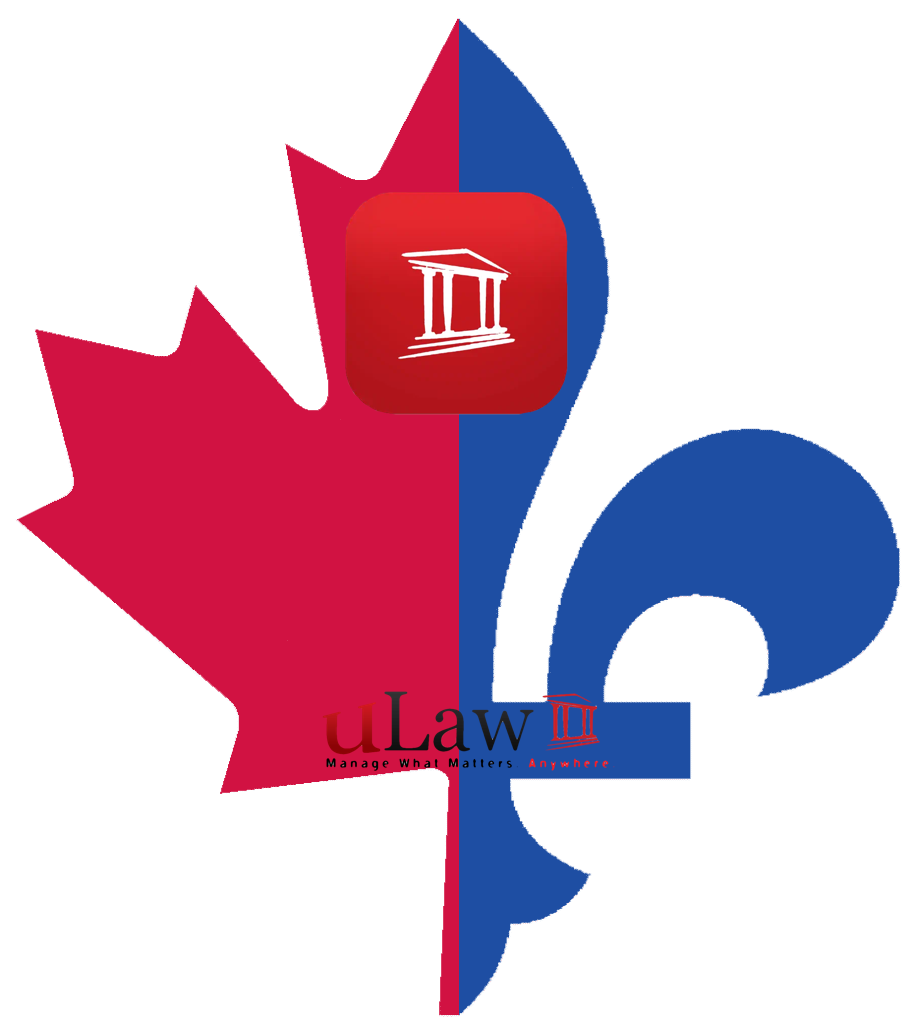uLaw: Serving Canada with Bilingual Legal Solutions

In the diverse and bilingual landscape of Canadian legal practice, uLaw stands out as a pioneer in providing comprehensive bilingual solutions for legal professionals. For over 13 years, uLaw has been committed to serving provinces like Quebec and New Brunswick, as well as the Ottawa/Gatineau region of Ontario, where English and French are not just languages but integral components of the legal fabric.
One of uLaw's standout features is its ability to generate client-facing documents in both English and French seamlessly. From settlement statements to statements of activity, retainer letters, and receipts, uLaw ensures that every aspect of legal business can be conducted in either official language. This is particularly crucial in regions like Quebec, where legal professionals need to cater to a clientele that predominantly speaks French.
uLaw continues to elevate the legal tech landscape with its innovative French Speech-to-Text feature. This cutting-edge functionality empowers legal professionals in bilingual regions, such as Quebec and parts of New Brunswick, to seamlessly transcribe spoken words from French into text. The French Speech-to-Text feature is a game-changer, enabling lawyers to efficiently convert spoken language, whether from client meetings, court proceedings, or personal notes, into text format. This not only streamlines the documentation process but also enhances accuracy and productivity. uLaw's commitment to bilingualism is further exemplified by this feature, catering to the specific linguistic needs of the Canadian legal community and reinforcing uLaw's position as a pioneer in legal software designed for the intricacies of the Canadian legal landscape. No competition software recognizes the importance of such features in their feature and product development.
The bilingual nature of uLaw extends beyond mere document production. Even the AI/ML algorithms powering uLaw's advanced features are trained in both English and French. This means legal practitioners can communicate, docket, and leverage AI capabilities in their preferred language, whether it's English or French. The flexibility to seamlessly switch between languages enhances user experience and efficiency.
For legal professionals practicing in Quebec and New Brunswick, where bilingualism is not just a preference but often a legal requirement, uLaw becomes an indispensable tool. The ability to operate in both languages ensures that client communication, documentation, and compliance are maintained at the highest standards.
uLaw offer tutorials and even training in French and our one on ones can be in french
In regions like the Ottawa/Gatineau area, where the dynamics of bilingualism are unique due to the proximity of English and French-speaking communities, uLaw provides legal professionals with the versatility to navigate seamlessly through their practice.
The importance of being bilingual in these regions cannot be overstated. A legal professional's ability to communicate and serve clients in their preferred language fosters trust and rapport. It opens doors to a broader client base and positions the practitioner as not only legally adept but also culturally sensitive.
Moreover, using a legal software that is inherently Canadian and bilingual aligns with the values of the local legal community. It reflects a commitment to compliance with regional norms and regulations, which is essential for maintaining a reputable practice.
In conclusion, uLaw's bilingual features go beyond mere language support; they empower legal professionals to thrive in the rich, diverse legal landscape of Canada.
The software not only meets the linguistic needs of the legal community but also plays a vital role in increasing client outreach, fostering better communication, and ensuring compliance with the unique bilingual requirements of certain provinces and regions. As the legal profession evolves, uLaw remains at the forefront, bridging borders and breaking language barriers for a more inclusive and efficient legal practice.

